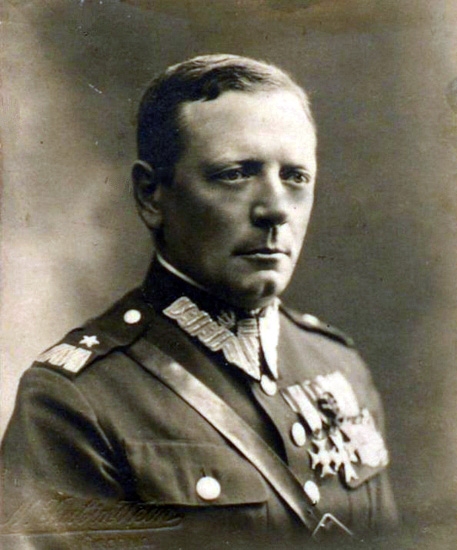In the late afternoon of 5 October 1939, near Kock, less than fifty kilometres north of Lublin, General Franciszek Kleeberg made the decision to surrender his troops. He was one of the few Polish commanders of the defensive war of 1939 who fought victorious battles against both German and Soviet armies.
Prior to the German aggression against Poland in September 1939, General Franciszek Kleeberg commanded a military district in Brest (now Belarus), where his task was to organise reserve troops to prepare the defence of the surrounding area.
Thanks to his energy and commitment, the attacks on Brest by General Heinz Guderian’s German tank corps were successfully halted. After the aggression of the Soviet Union on 17 September 1939. Kleeberg decided to head towards Romania, fighting battles with both invaders, and taking other Polish units under his command. The seizure of Kowel by the Soviets cut off this route for him. He then decided to cross the Bug River near Włodawa and march to help Warsaw. There, he reorganised his troops, creating the Independent Operational Group (SGO) “Polesie”, consisting of almost 20,000 soldiers.
News of the capitulation of Warsaw on 28 September 1939 prompted him to change his plans. He ordered a march to Dęblin, where he wanted to resupply arms and ammunition from the warehouses, and then attempt to break through to the Świętokrzyskie Mountains. During the march, the group encountered Soviet troops, smashing them near Jablon and near Milanow.
Between 2 and 5 October, the units of SGO “Polesie” fought fierce battles with the troops of the 13th Motorised Infantry Division and the 29th Motorised Infantry Division in the vicinity of Kock, Serokomla Adamowa, Krzywda and Wola Gułowska, which resulted in the rejection of the Germans from their positions. Unfortunately, due to the shortage of ammunition, General Kleeberg was forced to negotiate with the Germans about the terms of surrender.
Gen. Franciszek Kleeberg and his soldiers were taken prisoners by the Germans. He died in hospital on 5 April 1941 and was buried in the Neustadt military cemetery in Dresden. In 1969, his remains were exhumed and transported to Poland. He was laid to rest in Kock next to his soldiers killed in the Kock battle.





